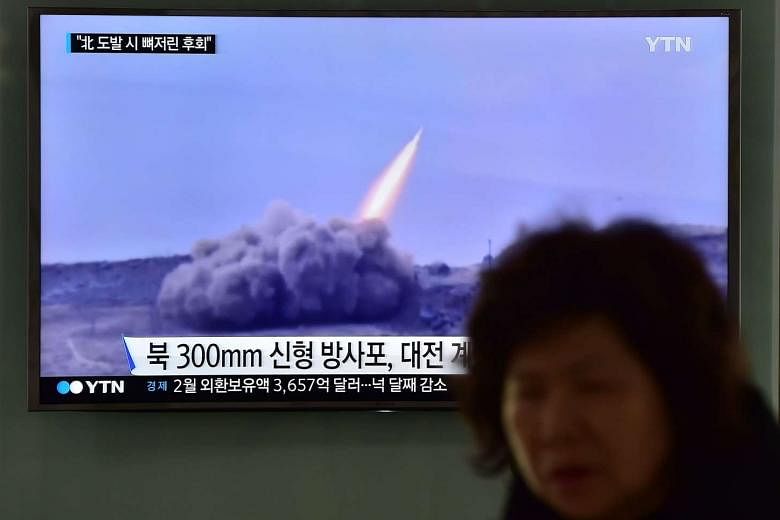SEOUL (AFP) - South Korea on Tuesday (March 8) unveiled a series of fresh unilateral sanctions against North Korea that includes asking citizens to boycott North Korean restaurants abroad.
The new measures imposed over the North's recent nuclear test and long-range rocket launch also blacklist scores of North Korean individuals and entities and bans vessels previously docked in North Korean ports from South Korean waters.
They follow tough sanctions adopted by the UN Security Council last week and - though largely symbolic given the lack of North-South economic ties - are likely to prompt an angry response from Pyongyang.
Seoul took the unprecedented step last month of closing operations at the jointly run Kaesong industrial complex and Tuesday's measures were aimed at "further toughening" sanctions against the North, the government said.
Designed to block foreign cash flows to the regime in Pyongyang, the government announcement included a request for South Koreans to stay away from North Korean businesses abroad.
"Since North Korean facilities such as overseas restaurants are one of North Korea's channels for foreign currency, we ask the public to refrain from using these facilities," said Mr Lee Suk Joon, head of the Office for Government Policy Coordination.
The South Korean government estimates that Pyongyang rakes in around US$10 million every year from some 130 restaurants in 12 countries.
"A decrease in the use of North Korean restaurants will have an effect of blocking its foreign cash flow for the most part," the government said in a separate statement.
Seoul also blacklisted 40 individuals and 30 groups involved with North Korea's nuclear and missile programmes - including two individuals and six groups from a third country - banning them from doing any business with South Koreans.
The move to ban foreign vessels that have previously docked in the North would appear to spell the end of an ambitious trilateral infrastructure project aimed at transporting Russian coal to South Korean ports through the North's port city of Rajin and Russia's border town of Khasan.
The so-called Rajin-Khasan project was viewed as an integral part of South Korean President Park Geun Hye's vision of uniting the railways of South and North Korea to connect them to Europe.
The new measures add to a number of existing sanctions South Korea imposed in 2010 after blaming North Korea for the sinking of one of its naval corvettes.

